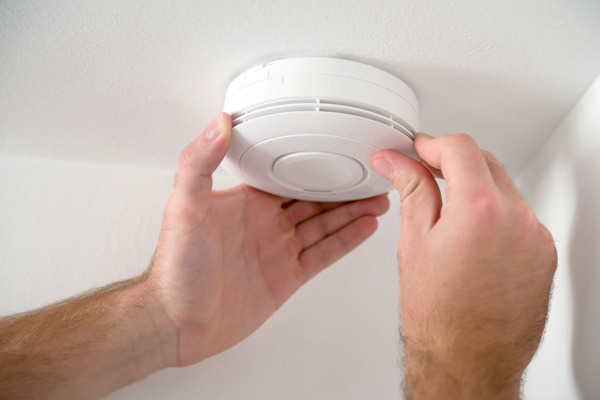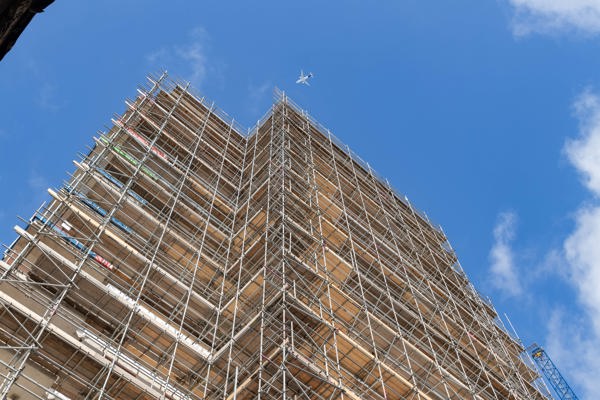We’ve long called for clarity from the Government around who should pay for fire remediation costs. We welcome the Government announcement that leaseholders shouldn’t have to pay, along with further detail about recovering costs from developers. And we’re glad these commitments carry the full force of law, following the passage of the Building Safety Act 2022 on 28 April.
We’re pleased to confirm we’ve updated our policy to reflect the new Government position. We will not pass on costs to leaseholders for:
- any fire safety remediation works we undertake related to historic defects as defined by the Building Safety Act 2022
- work carried out relating to interim measures - this includes temporary alarm installations and evacuation management costs (such as Waking Watch).
This applies to all leaseholders*, irrespective of the height of the building you’re living in.
*This may not apply if you’re a buy to let investor or if you own more than three properties.
Leaseholder recharging for day-to-day costs and maintenance works will continue as normal. This will include day-to-day fire safety costs, which have always been charged to leaseholders, such as the maintenance of safety equipment and regular inspections.
We hope the measures the Government have introduced will mean leaseholders will be able to sell their homes again without difficulty. However, we have no control over a lender’s decision around lending against your home.
We’re reliant on the Government putting pressure on lenders to lend against these buildings. Although we have no direct control over this, we’ll continue to lobby Government on your behalf. In the meantime, we’ll do all we can to support you and would encourage you to speak to us about your options. We’re happy to discuss things on a case-by-case basis.
As we’ve explained, the national shortage of qualified assessors means we’re unable to give a firm date at the moment for the start of works in particular blocks. We’ll let leaseholders know when their building has been reassessed and discuss the details of any works that are needed on a case-by-case basis. We can reassure you we’re doing everything we can to keep this process moving. We’ll continue to maintain interim fire safety measures, where necessary, to ensure your safety.
We want to make sure you’re safe in the building you live in. This has always been our number one priority.
Since the Grenfell tragedy in June 2017, we’ve complied with the Government’s changing advice and guidance around building safety.
To assess which buildings required works, we’d previously followed the MHCLG’s (Ministry of Housing, Communities and Local Government) “Advice for Building Owners of Multi-storey, Multi-occupied Residential Buildings” [January 2020], and the subsequent ‘Supplementary note to building safety advice for building owners’ [November 2020].
This guidance was officially withdrawn in January 2022 and replaced with PAS 9980. PAS 9980 is a new code of practice for the fire risk appraisal of external wall construction and cladding of existing multistorey and multi-occupied residential buildings. We’re now using this new guidance to determine whether works are needed.
We’re keen to ensure we have up-to-date fire safety assessments, using the new PAS 9980 code of practice.
The national shortage of qualified assessors makes this incredibly challenging, but we’re conducting PAS 9980 assessments as quickly as we’re able. Once we’ve completed the assessment we’ll share the findings with you and explain what this means for your building.
We’ll be following the requirements set out in the Government’s PAS 9980 guidance. This may mean the same work is still required at your building, some work is needed or work is no longer required at all.
While assessments are ongoing, we’ll continue to maintain interim fire safety measures, where necessary, to ensure your safety. We’ll cover the cost of these arrangements. Our approach to fire safety will remain proportionate and we’ll only carry out works where they’re reasonably required.
No, we will not be freezing your rent or service charge.
We’re an active member of the National Housing Federation, which is meeting regularly with UK Cladding Action and other leaseholder groups on behalf of all housing associations.
Waking Watch:
A Waking Watch is a short-term measure for buildings which are referred to as ‘high risk’. It’s a service where operatives regularly patrol the building within set periods of time.
A Waking Watch would remain in place whilst temporary measures, such as temporary alarms, are installed. The operatives also manage the evacuation and liaise with the fire service in the event of a fire.
Waking Watch generally only applies to buildings over 18m, though it may be considered necessary for buildings under 18m.
Evacuation Marshal:
Evacuation Marshals provide an ongoing presence in the highest risk buildings (generally only buildings over 18m) following the installation of the interim measures, such as the temporary alarm. They co-ordinate and manage the evacuation of the building and liaise with the fire service in the event of a fire.
Evacuation Steward:
An Evacuation Steward provides evacuation management to a resident who is otherwise unable to self-evacuate. Residents are identified as requiring an Evacuation Steward through a formal person-centred fire risk assessment and personal emergency evacuation plan.
Evacuation Stewards can be required in any building where the evacuation strategy has been changed to self-evacuation and where there is a resident who’s unable to appropriately self-evacuate.
Yes, we’re continuing our efforts to pursue developers, warranty providers and other third parties for costs. This may impact on the speed at which your building will have any required works completed.
As a not-for-profit organisation, we’re under an obligation to protect our charitable aims. We reinvest our income back into providing services for our 90,000+ residents, so it’s vital we do all we can to reduce the financial impact of meeting these fire safety costs on our wider work.
We want to be as open and transparent as we can be with you. We understand why it might be frustrating not being able to see every document. However, one of the reasons we’re unable to share certain, sensitive, documents at this stage is they could form part of a legal case for recovering costs from others.
If we disclose this information the chances of a successful claim may be lost or significantly damaged.
These reports are also technical and complex and intended for suitably qualified experts. They will consider them in addition to other relevant information for the building and occupants. However, there are occasions where we can provide a summary which we’re happy to share with leaseholders.
We will cover this cost and can confirm it will not be recharged to leaseholders.
No, leaseholders will not be charged for any PAS 9980 re-assessments.
We’ve set aside significant funds to spend on fire safety works over the next five years. Unlike private developers, we’re a not-for-profit organisation and we reinvest our income back into providing services for our 90,000+ residents. While we’re not offering compensation to individual households, we will be protecting our leaseholders from costs as set out on this web page.
We won’t charge leaseholders for any fire safety remediation works related to historic defects as defined by the Building Safety Act 2022. This applies to all our shared owners and leaseholders.
To clarify, this applies to all leaseholders*, irrespective of the height of the building you’re living in. We will vigorously continue our efforts to pursue developers, warranty providers and other third parties for costs.
*This may not apply if you’re a buy to let investor or if you own more than three properties.
We’re really sorry you’re having to go through this. This is a situation many other residents across the country are facing too.
Our staff are empathetic to the situation you’re in.
You’re not alone. If you’re feeling stressed or are struggling, please talk to us and we can signpost you to support services. The NHS has lots of useful resources, while the Samaritans and Mind may prove helpful too.






